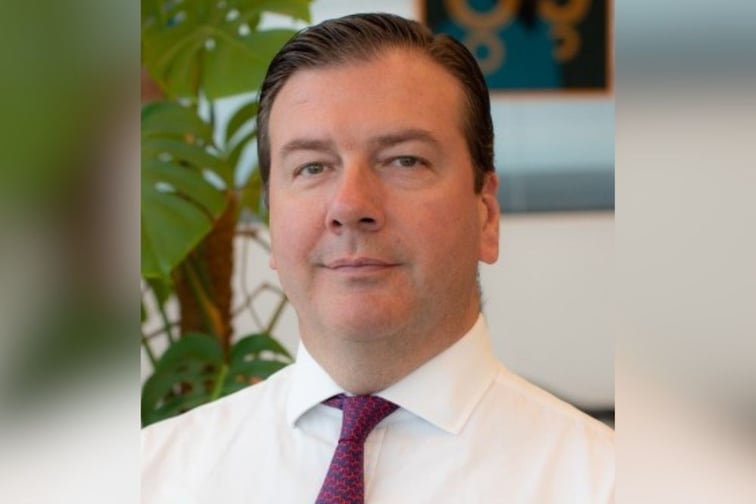

“The challenge at the moment, when you look at the amount of catastrophe insurance that comes into the London marketplace,” said Mark Cody (pictured above). “Put bluntly, [is] a lot of the underwriters just haven't made money in the last four or five years.”
Cody is the London-based managing director of Amwins Global Risks. His firm is the international arm of global specialty insurance broker, Amwins, that describes itself as the largest independent wholesale distributor of specialty insurance products in the US. Some of Amwins’ biggest clients include juggernaut brokerages like Aon, Marsh and WTW.
“We’re known for being good at wholesale and for accessing a huge array of markets for our clients,” said Cody, who spoke to Insurance Business Australia in Sydney.
However, he said, even though globally rates for catastrophe insurance are increasing, the regular succession of natural catastrophes in recent years is “wiping that premium base out.”
“I think the straw that broke the camel's back was the reinsurance market for those syndicates and carriers who finally said, ‘Enough is enough!’” Cody said. “What we're watching now is a global property, specifically hardening market.”
He said for the first time in his 25-year career there are placements that are very hard to complete and a lack of capacity.
“In the past, you could put together four, five or six hundred million US dollars of catastrophe cover in place for some of these really large property portfolios,” he said. “That's now proving harder to place.”
The added challenge, said Cody, is that in previous years a hardening London market could lead to some of that business getting picked up by local markets. Today, he said, local markets are in a similar position to London.
“So it's going to be a longer, sustained hard market, specifically in the property catastrophe space and that has a knock on effect into other classes,” Cody said. He mentioned the collapse of Silicon Valley Bank (SVB) and Credit Suisse and said that will have flow-on impacts, for example, in the directors and officers (D&O) market.
IB asked how the hard insurance market Cody described, added to global economic challenges, impacts his work. How does he get around these difficulties?
“It’s a fascinating question and a very good one,” he said. “Like a soldier that trains all of their life for battle, I think good brokers will always find a way of being innovative again, restructuring and relayering programs, calling in favours.”
Now, more than ever, said Cody, he’s finding that insurance really is a relationship business.
“For years, you’d tell your clients that they're doing the right thing by coming to London, meeting the syndicates and meeting markets and that those relationships mean something,” he said. “Now we're going to be really putting that to the test, this is that moment.”
He said his team’s access to decision-makers helps overcome challenging market conditions for clients.
“The reality is that the boys and girls that I used to roll up my sleeves with and go into the Lloyd’s building and trade with have now become the active underwriters of syndicates and companies,” Cody said. “So I think it's the ability for myself and my team to access the decision makers and trade through it.”
However, he expects the market to continue being tough “for a little while.”
“I can't see at the moment that you're going to get a huge influx of investment income coming in because with interest rates where they are, some people would say it's better to put the money in the bank and get 3% or 4% versus gambling it on insurance,” Cody said.
He said Amwins has to counter that view.
“We've got to counter that and say, ‘Actually, we've got a good model, we know what we're doing and we can make that work.’”
IB asked the Amwins managing director if there is a nagging worry in the back of his mind that the current, catastrophe-impacted hard market is the new normal rather than a cycle?
“I think it is going to be a cycle,” he said. “Depending on where the market conditions get to, investment income will come back.”
He didn’t expect that to happen before 2024. “But at some point it [investment] will look over the wall and say, ‘Actually, those returns look good, the rate environment is good,’” Cody said.
What’s needed, he said, is “a couple of good years under our belt.”
“Every time we think we're going to have a good year, we have a catastrophic event that wipes that out,” Cody said. However, he said the fact that the Lloyd’s market recently posted a profit, despite the impacts of Hurricane Ian in the US, was “a good sign.”
“That means that over the last four or five years, they've got the rate environment up to the point where they can sustain a big, global catastrophic event and still make a small profit,” he said. “But as I keep telling my clients, one swallow doesn't make a summer.”
Cody said Lloyd’s one good year out of the last six means they still need to prove “to their management” that they can do the job.
“We have to continue trading through that,” he said.
